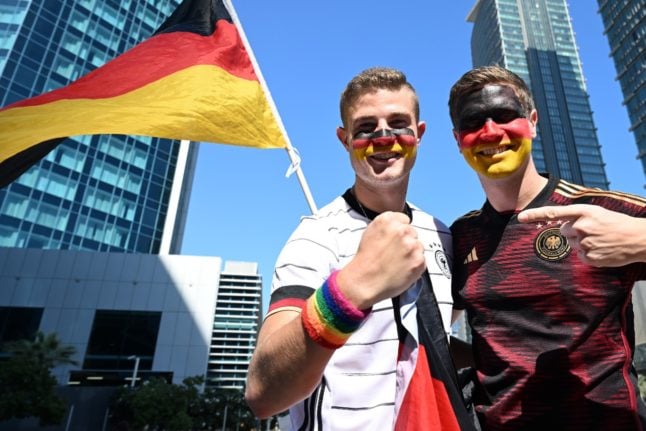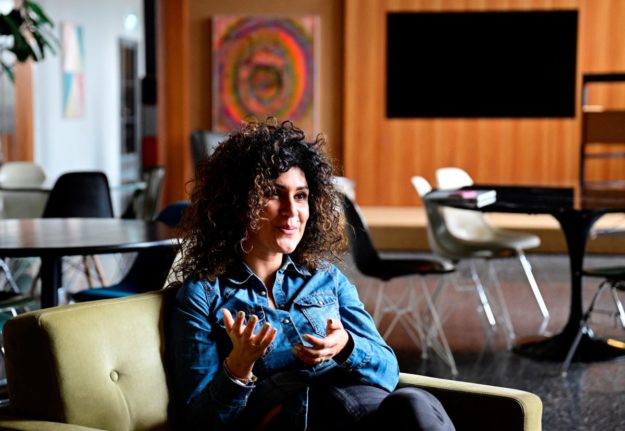“I suppose you have to wear the armband now. I would maybe take my chances,” Habeck told German public broadcaster ZDF on Tuesday evening. “I would be interested to see what the referee does when someone with the armband comes over.”
The rainbow armbands had been viewed as a symbolic protest against laws in World Cup host Qatar, where homosexuality is illegal.
Captains of several European teams had planned to wear the symbol as part of a campaign for diversity during the tournament hosted by Qatar, but they have backed down over the threat of disciplinary action from FIFA, world football’s governing body.
The teams have however come under fire at home for failing to take a stronger stand against FIFA’s stance on the armbands.
READ ALSO: Germany turns rainbow-coloured in protest at UEFA stadium ban
Amid the criticism, national team director Oliver Bierhoff suggested that some action by the German players may be possible.
“We will see. This has preoccupied the players a lot,” he told public broadcaster ARD on Wednesday.
Interior Minister Nancy Faeser, who will attend the Germans’ opening game in the Qatari capital Doha, said FIFA’s ban was a “huge mistake”.
Not only players, but fans too should be allowed to show pro-LGBTQ symbols “openly”, she told reporters in Qatar Wednesday.
Security staff at the tournament have ordered spectators to remove items of clothing featuring rainbow logos.
Supporters should “make a decision for themselves” about whether they wanted to wear the symbols, Faeser said.
Meanwhile, Germany’s top-selling Bild daily also urged the German team to make a public stand for diversity.
In a commentary, it said the “courage trophy” can be won by those “who give this World Cup back its dignity”.
“A team that wears the ‘OneLove’ armband and that doesn’t simply cave in. A fan terrace that appears in rainbow colours, a sportsman who turns his national anthem in a song that honours both his country and freedom,” it said.



 Please whitelist us to continue reading.
Please whitelist us to continue reading.
Member comments